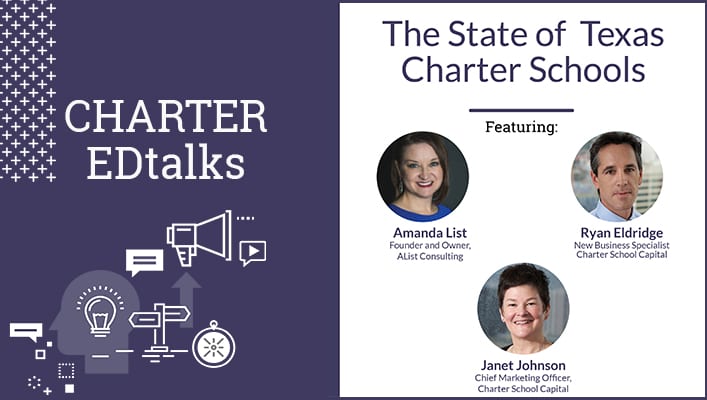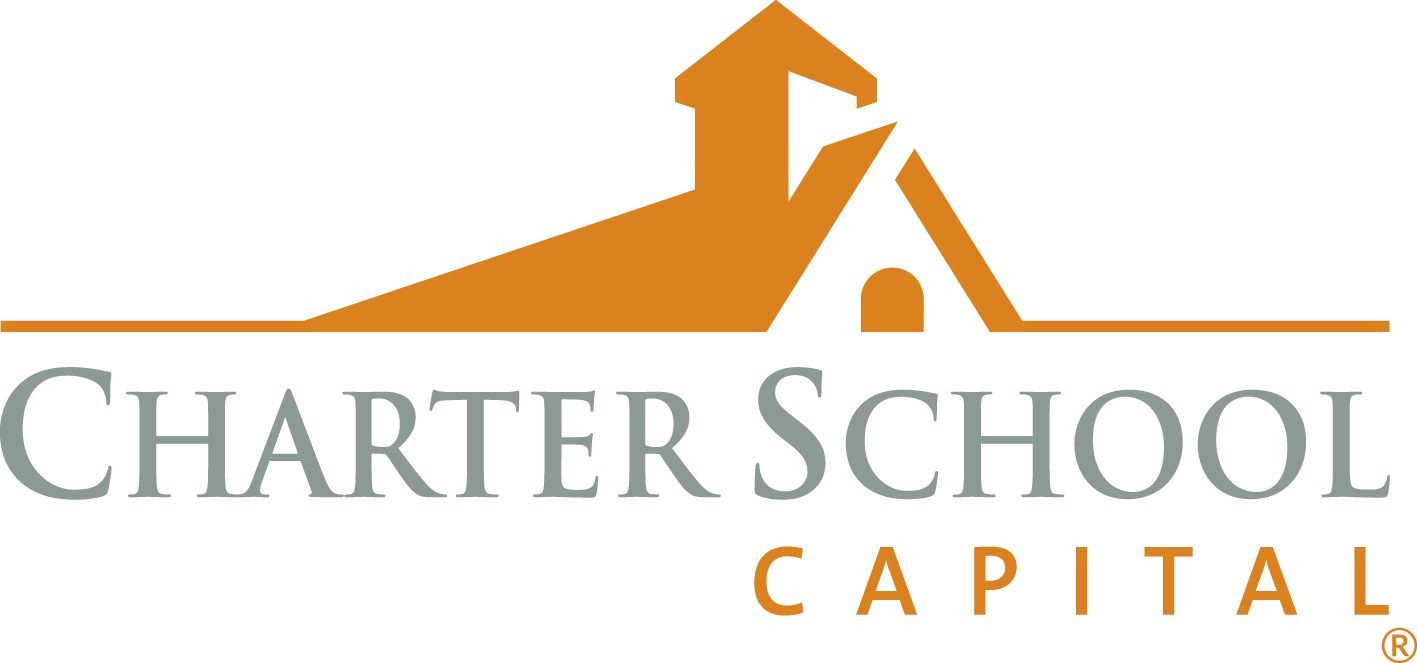 What is the State of Texas Charter Schools?
What is the State of Texas Charter Schools?
In this CHARTER EDtalk, we were fortunate to be able to sit down with Amanda List from A List Consulting to learn more about the Texas charter school landscape.
Amanda has extensive state government affairs and public charter school experience including strong ties to the Texas Capitol and the Texas Education Agency. She is currently working with the Texas Charter School Association Advocacy Team and the elected member advocacy committee as the association prepares for the next Texas state legislative session in 2019.
Listen as she shares the state of Texas charters with regards to the application process, the three strikes rule, and some amazing success Texas charters are seeing due to the state’s rigorous oversight. The transcript can be found below the video.
Janet Johnson (JJ): Welcome to the next CHARTER ED talk. We are at the National Charter School Conference in Austin, Texas where it’s nice and muggy. We have Amanda List from Alist Consulting who has specialized in charter schools for quite a while and she’s here to answer some questions about specifically Texas. And Ryan Eldridge from Charter School Capital will be assisting and asking the questions of Amanda.
Ryan Eldridge (RE): Thank you, Janet.
JJ: Good morning.
Why do you love charter schools?
RE: Good morning. So Amanda, we’re actually here at the National Charter School Conference as one of the main sponsors and we’re doing a campaign called “We Love Charter Schools”. What is it about charter schools that you love?”
Amanda List (AL): What I love about charter schools is that not every child learns the same. Charters give options for kids. In Texas—and I’m not familiar with other states obviously as I am with Texas.
In Texas, we have different missions and different styles of charters. So, we have the high performing charters which you’ve heard of (IDEA Public Schools and Harmony Schools, etc.). Those are considered our college prep schools. And then you have schools that focus on dropout recovery, credit recovery. Then you have some schools that focus on elementary science, etc.
What I love about it is allowing kids these options that they have because again not everyone learns the same. And it’s personal for me because I went to private school and it was not a model that I learned on. I just didn’t learn. I struggled through school to a point where I graduated high school, I didn’t think I was smart enough to go to college. Going to college and having that direct teach changed my life and I graduated on the Dean’s list.
So it’s very personal for me because I don’t want a child to be struggling in school. Not because they’re not smart which is not the method that they learn, so that’s why. I know that’s a long response, but that’s fine.
The Texas charter school landscape
RE: Can you give us an overview of the Texas charter school landscape?
AL: Yes. Currently, there are 675 charters in Texas. There are 185 operators and so sometimes these two numbers confuse people. So in Texas, you have an agreement with the state and then with that, you can have multiple campuses. So there are 675 charters serving more than 272,000 students with a wait list of about 140,000. So definitely, there is a demand for more charters here in Texas.
What is the “three strikes and you’re out rule”?
RE: What is this “three strikes and you’re out” mean for charters?
AL: Three strikes and you’re out was back in our legislative session of 2013. We had a huge bill passed, Senate Bill 2. It was a huge reform bill. So Senate Bill 2 put the teeth into closing poor performing charters and in that, also created the three strikes and you’re out rule. So three strikes and you’re out means that if you fail the financial ratings which is School First here in Texas or accountability, either of those three, in three consecutive years, then the Commissioner of Education will close you.
Editor’s Note: During the 83rd legislative session, the Texas Education Code was amended to include a statutory provision for the revocation of charter schools that failed to meet academic or financial accountability for the three preceding school years. The law states that failure to meet these standards will lead to mandatory revocation of a school’s charter.
Through that, it really got a lot of teeth into closing bad charters. We are all advocates of choice and we’re all advocates of quality schools, but as you know, there are some people out there that are not running quality schools.
There has been some pushback since that of “Wait a minute. There should be a little bit of lead room in there.” I can see it both ways, but for now, it stands as three strikes and you’re out. So, I think it’s one of the most strict laws in the nation when it comes to closing poor performing schools.
On getting Texas charter schools authorized
RE: Absolutely. And we’ve heard you have a rigorous application process. Can you describe that for us?
AL: Yes. Also in Senate Bill 2, it changed the way that charters were authorized in Texas. As advocates for Texas charters, we want the process to be rigorous. We just don’t want anyone to get a charter. But at the same time, it’s kind of gone to the extreme in that it’s almost so rigorous now and there is a bias towards out-of-state charters coming into Texas.
I’ve actually just completed a paper with Excellence In Education and we’ve covered this topic on how do we look at the Texas landscape and what are the policies that we can put in place to attract the out-of-state performers coming in and then also just attract folks locally or throughout Texas to start schools. But for right now, the process. The application easily 5-700 pages in length and takes months to complete.
Texas charter school success
RE: Now, we’ve also heard you have some of the best charters in the nation. Is that because of all the rigor?
AL: Yes. I think so and just us being Texans, so we’re pretty proud of ourselves. There’s that. But we do. We have seriously some of the best charters that U.S. and World News Report just came about a month ago or so and– up in Round Rock, Texas – Meridian World Charter School was ranked sixth in the nation when it comes to the best high schools.
And, over 70 Texas charters either received the Silver or Gold rankings. So we are very proud of the success that we’re having here in Texas.
RE: Well, now that sounds really great Amanda. Thank you very much for coming today. We really appreciate you sitting down with us.
AL: Thank you both for having me.
JJ: Thank you. It’s been great.
 Since the company’s inception in 2007, Charter School Capital has been committed to the success of charter schools. We provide growth capital and facilities financing to charter schools nationwide. Our depth of experience working with charter school leaders and our knowledge of how to address charter school financial and operational needs have allowed us to provide over $1.6 billion in support of 600 charter schools that educate 800,000 students across the country. For more information on how we can support your charter school, contact us. We’d love to work with you!
Since the company’s inception in 2007, Charter School Capital has been committed to the success of charter schools. We provide growth capital and facilities financing to charter schools nationwide. Our depth of experience working with charter school leaders and our knowledge of how to address charter school financial and operational needs have allowed us to provide over $1.6 billion in support of 600 charter schools that educate 800,000 students across the country. For more information on how we can support your charter school, contact us. We’d love to work with you!